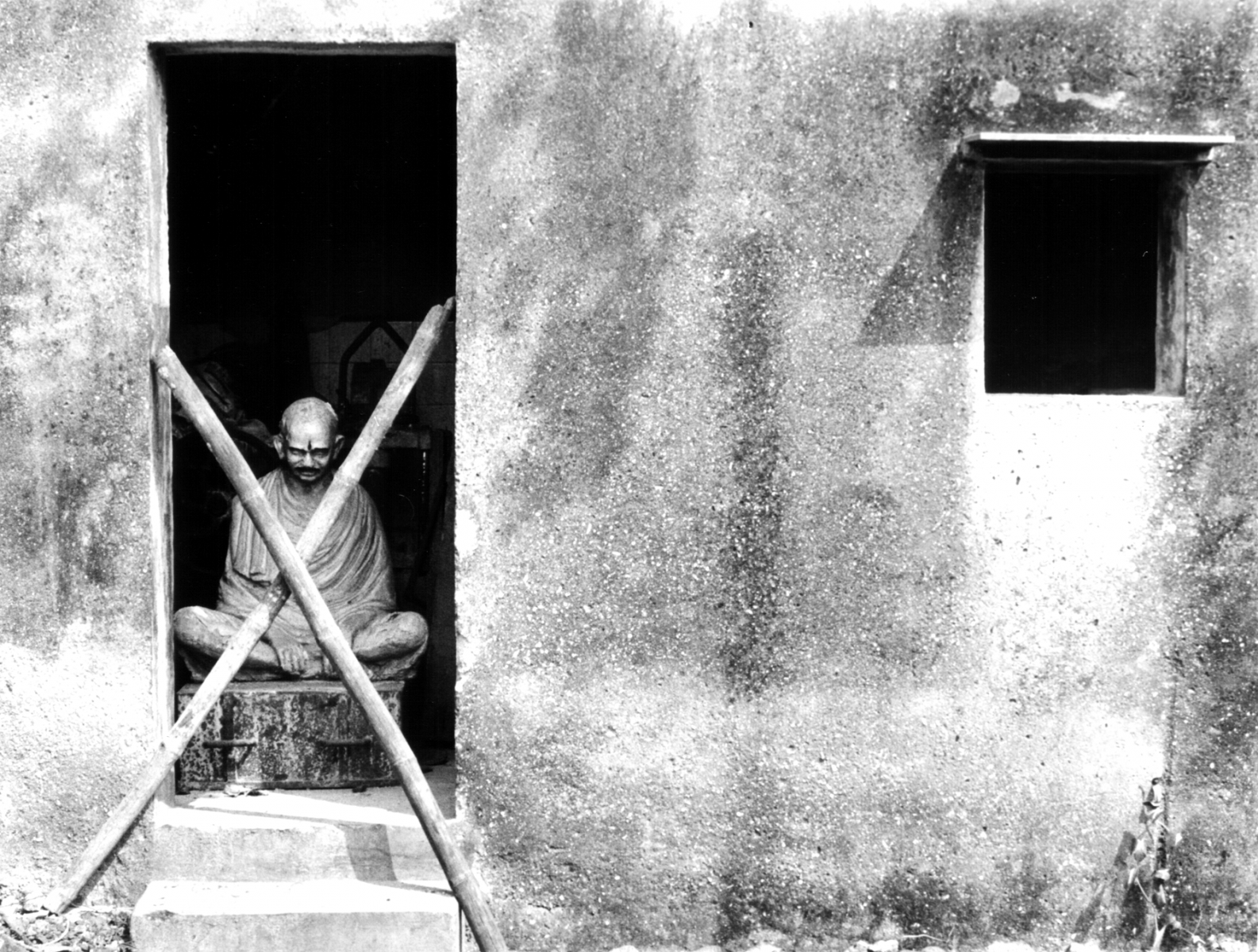The Mahatma will not die

Though they do not love him, they cannot leave him. The abiding image of the in domitable courage of a half–naked, bare-footed, bespectacled, old man, born out of his conviction in the principles of restraint, dialogue and non–violence, simply refuses to fade away even fifty–two years after his brutal assassination. No wonder, then, that despite the political and cultural success in recent years of the ideology that killed him, despite the ascendancy of a politics based on hatred, violence, murder and an open espousal of aggressive militarisation and nuclearisation, the heirs of Gandhi’s killers still feel compelled to vilify him in order to justify their own obscene celebration of his death.
Whether it is through plays or tailored history, the ideological battle rages on in Maharashtra – the birthplace of hate–Gandhi — and Gujarat — the birthplace of Gandhi, now the laboratory of Hindutva. Proving more than anything else that Gandhi still poses a threat. The desperate rationale behind his attempted demonisation is the simplicity and success of his message of equality and harmony between co-religionists, as much as his advocacy of restraint and non–violence.
That, then, is the justification for our cover story this month. It is for the first time that English-speaking readers have access to two significant pieces, one originally written in Gujarati and the other in Marathi — in response to the renewed attempt to valorise a villain — Nathuram Godse.
Two years ago, the staging of Pradeep Dalvi’s play, Mee Godse Nathuram Boltoye, in Maharashtra generated a heated controversy that ended with a ban on the play by the then ruling Shiv Sena–BJP coalition. Sadly, the staging of over 60 shows of the Gujarati version of the same play evoked no protest from a state that boasts of over 2,000 Gandhian institutions. However, Chunibhai Vaidya, a noted Gandhian from Gujarat, and YD Phadke, a noted historian from Maharashtra, responded with aplomb, thoroughly exposing the crude attempt at falsification of history. Vaidya’s little booklet has since been translated into seven Indian languages, while Phadke’s series of article’s, first published by Apla Mahanagar, have been put together as a collection — Nathuramayan.
Both works go beyond the immediate context of the controversy generated by Dalvi’s play. The false charge of “Muslim appeasement”, including the allegation of the Rs. 55 crore “gift” to Pakistan, that was used by a section of Puneites, owing allegiance to the RSS and the Hindu Mahasabha, to justify Gandhi’s murder in 1948 still hovers below the surface in public discourse. These have been effectively rubbished by the authors, showing how there were as many as six attempts on the Mahatma’s life from the same ideological quarters from as early as 1934, when there was no talk either of Partition, Pakistan or Muslim appeasement!
Why was Gandhi the main enemy of Hindu fanatics and not Jinnah, the main proponent for Pakistan post–1936 or Lord Mountbatten, who encouraged the plan for vivisection later? Vaidya and Phadke have some answers.
No month passes without fresh distress signals being sent out, indicating the brazenness of the current political dispensation. The results of the zilla parishad and taluka level elections from Gujarat, Hindutva’s model state, are reassuring (see our Special Report). But eminent historian KN Panikkar’s lucid interview is reminder of the systematic fashion in which an ideologically driven state apparatus continues to curtail space for academic and cultural freedom.
The pathetic plight of Hindu refugees from Pakistan, some of whom migrated to India as far back as 1971, is testimony to the shallowness of the politics of religious identity that is quick to use this discourse to mobilise mobs but slow to respond to real–life predicaments. We carry a report plus an interview with an activist.
In last month’s issue, we had highlighted the shallowness of the Maharashtra government’s promise to “implement the Justice Srikrishna report in full”. To re–vitalise protest, as much as to rejuvenate the struggle for compensation and punishment of the guilty, Communalism Combat organised a Public Hearing of the survivors of the Bombay riots. The success of the hearing that brought together various groups struggling for relief, rehabilitation and justice among other things lies in the emergence of a collective ‘Citizens’ Watchdog Committee’ committed to pursuing both the compensation question and the justice issue — especially in cases of crimes committed by politicians in power and men in uniform.
— Editors



